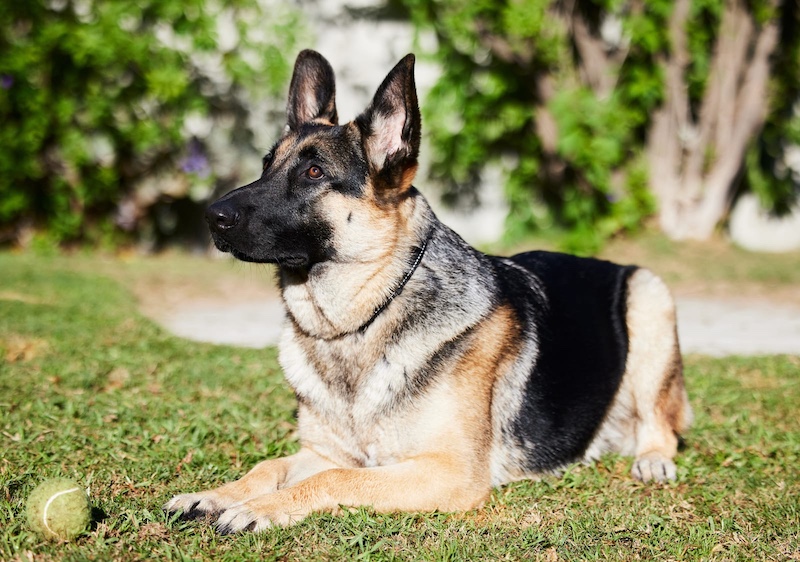Just like people, some dogs are more prone to digestive issues than others. While any dog can develop a sensitive stomach, certain breeds are more likely to experience food intolerances, allergies, or gastrointestinal upset. If you’re considering adding a dog to your family—or already have one struggling with tummy troubles—knowing which breeds are more susceptible can help you make informed decisions about diet, care, and vet visits. Here are 10 dog breeds that are known for having sensitive stomachs.
Labrador Retriever

Despite their reputation as hearty eaters, Labradors are actually prone to food allergies and sensitivities. Their sensitive stomachs can be aggravated by fillers and artificial ingredients, making high-quality, limited-ingredient diets a smart choice.
German Shepherd

This intelligent and active breed is often affected by gastrointestinal issues like irritable bowel syndrome (IBS) and chronic diarrhea. German Shepherds do best on highly digestible foods, and some may benefit from probiotics or prescription diets.
Boxer

Boxers are known for having sensitive digestion, often reacting poorly to fatty foods or abrupt diet changes. They’re also prone to pancreatitis, which can make managing their diet especially important. Feeding them consistent, low-fat meals and avoiding high-calorie treats can go a long way in keeping their digestive system stable.
Yorkshire Terrier

These tiny companions often have delicate digestive systems. Yorkies may suffer from vomiting, diarrhea, or food allergies, especially if their diet includes grains or low-quality proteins. Small-breed-specific formulas can help keep their tummies in check.
Irish Setter

This elegant breed is predisposed to gluten sensitivity, a rare condition in dogs that can lead to chronic gastrointestinal issues if not managed properly. Feeding an Irish Setter a grain-free or gluten-free diet is often beneficial.
Miniature Schnauzer

Miniature Schnauzers are at increased risk for pancreatitis, which causes inflammation in the pancreas and digestive distress. Low-fat diets are often recommended to prevent flare-ups. Regular veterinary check-ups can help monitor their condition and catch any early signs of digestive issues.
Great Dane

These gentle giants have a slow digestive system and are more susceptible to bloat and indigestion. Feeding them smaller, more frequent meals and avoiding vigorous exercise around feeding time can help reduce digestive problems.
Poodle

All sizes of Poodles—Toy, Miniature, and Standard—can have food sensitivities. They often benefit from diets with novel proteins and limited ingredients, especially when symptoms like gas or soft stools appear.
French Bulldog

Frenchies are known for their flat faces, which can contribute to air swallowing and gassiness, but they’re also prone to food allergies and gastrointestinal issues. A diet low in common allergens like chicken or beef may help.
Shih Tzu

This toy breed frequently suffers from food intolerances and stomach sensitivity. Look for diets formulated for small breeds and consider avoiding artificial additives or rich foods that can upset their system.
- Please Note: This content was created with the assistance of AI and thoroughly edited by a human before publishing.

